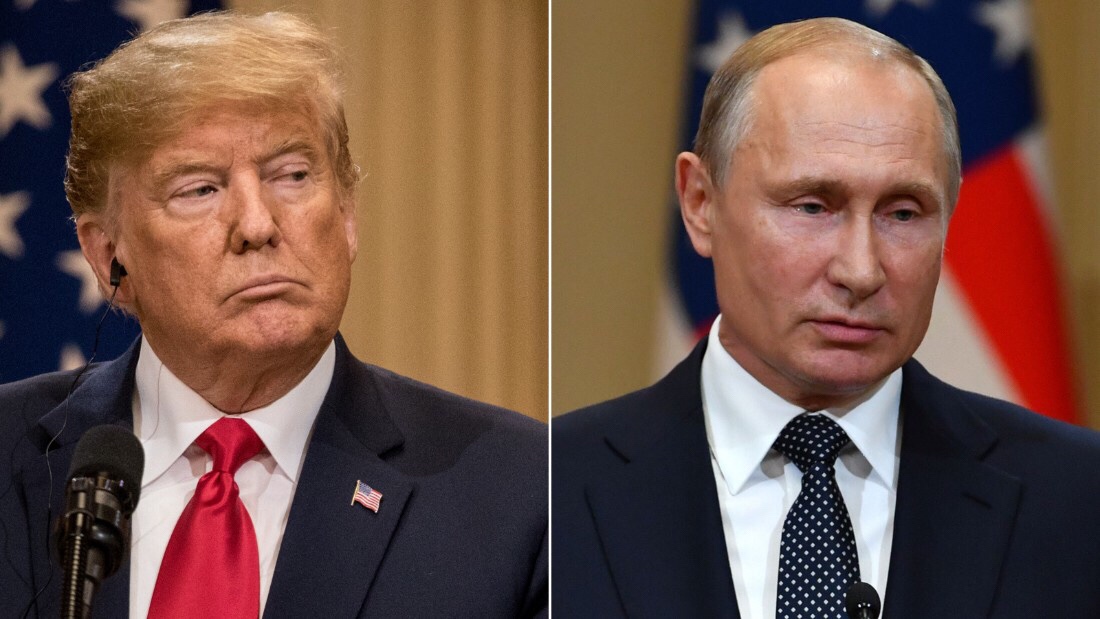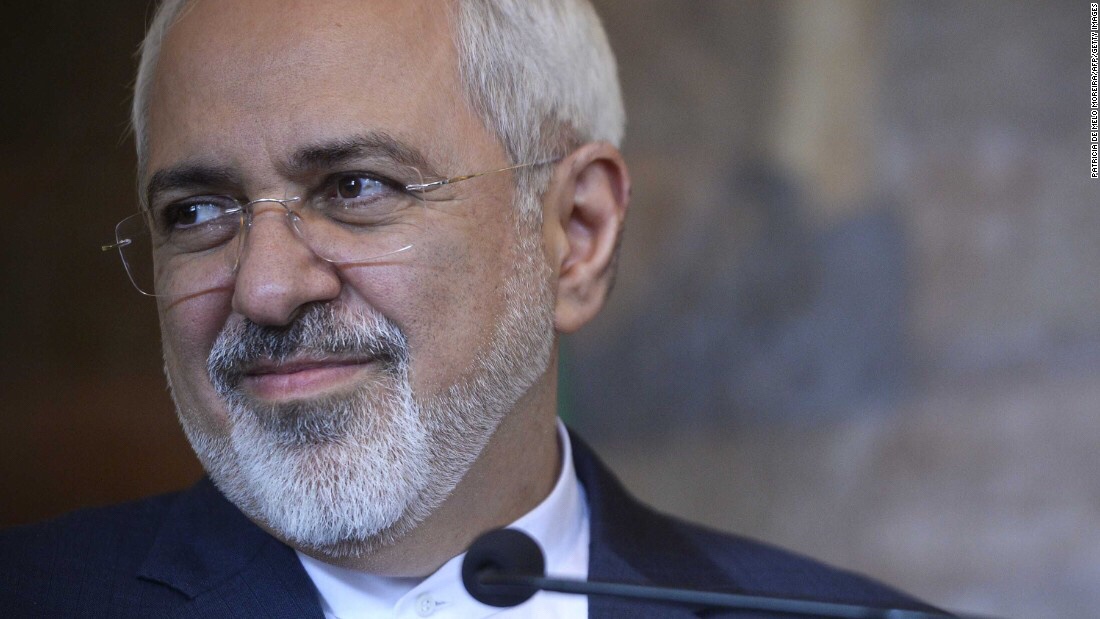By Kylie Atwood and Nicole Gaouette, CNN
Updated 7:24 AM EDT, Fri April 26, 2019
Washington(CNN) President Donald Trump has his eyes on a new foreign policy prize: a grand nuclear deal with Russia and China, that he sees as a potential signature foreign policy achievement. However, some arms control experts are concerned the effort could backfire.
The President, who has a penchant for big deals, has hinted publicly a deal is on his agenda, adding a threat if it doesn’t come to pass.
„Perhaps we can negotiate a different agreement, adding China and others, or perhaps we can’t,“ Trump said, mentioning his decision to pursue a treaty during his January address to the nation. „In which case, we will outspend and out-innovate all others by far.“
The White House is conducting intense interagency talks to develop options for the President to pursue such a deal, building off another nuclear pact, the New START Treaty, which expires in 2021, multiple White House officials told CNN.
„The President has made clear that he thinks that arms control should include Russia and China and should include all the weapons, all the warheads, all the missiles,“ said a senior White House official. „We have an ambition to give the President options as quickly as possible to give him as much space on the calendar as possible.“
„This is something that no administration has tried,“ the senior official said. „But I would argue no administration has tried what [Trump] tried with North Korea for example.“
Worries about triggering an arms race
But the scale of those ambitions, Trump’s past criticism of New START as a „bad deal“ and the role of national security adviser John Bolton — a longstanding critic of arms control agreements — have some observers concerned that the administration’s true goal might be find a way to exit a second nuclear pact it sees as constraining and outdated.
„The only reason you bring up China is if you have no intention of extending the New START Treaty,“ said Alexandra Bell, senior policy director at the Center for Arms Control and Non-Proliferation.
Bell and other arms control experts worry that before too long, the world’s two largest nuclear powers might shed limits on their nuclear arsenals for the first time in decades.
Administration officials say their aim is to revamp a dusty pact for a new age and increase global security.
„If we can get the deal right, if we can make sure that it fits 2021 and beyond, President Trump has made very clear that if we can get a good solid arms control agreement we ought to get one,“ Secretary of State Mike Pompeo told Congress this month. He added that „we need to make sure we’ve got all of the parties that are relevant as a component of this as well,“ Pompeo said. „Other countries besides Russia and China.“
The Trump administration has not set out a timeline for negotiations or even raised the prospect with China and Russia. Pompeo told lawmakers the US was in the „very beginning of conversations about renewing“ the treaty.
New START „covers only a small sub-set of weapons that Russia was comfortable covering,“ said the official.
‚We should eliminate as many of them as possible‘
„What the President wants to look at is, we should bring all of those weapons under control,“ the official said. „We should eliminate as many of them as possible, we should look to eliminate classes of weapons.“
With less than two years left in his first term, Trump would be under the gun to accomplish something that many view as impossible. Administration officials say that’s not a reason not to try, and one pointed out that it took the Obama administration less than two years to negotiate New START.
It’s a comparison that arms control experts say doesn’t hold water. New START was built on decades of negotiations for the original START Treaty, while a pact that includes a new country could require starting from scratch.
Both US and Russian officials have signaled that renewal could be drawn-out and difficult. Trump administration officials question whether Moscow’s development of new nuclear weapons is the kind of step a „responsible stakeholder“ would take.
Russian officials question US compliance with New START.
„The extension of the New START is not a simple technicality that could be resolved in a couple of weeks,“ Russian ambassador to the US Anatoly Antonov said at an arms control conference this month. „Serious issues must be settled.“
The 2010 New START treaty limits both nations to deploying 1,550 nuclear warheads over 700 delivery systems, including intercontinental ballistic missiles, submarine-launched ballistic missiles, and bombers. It also allows for 18 on-site inspections every year that allow each side to keep a close eye on the others‘ capabilities.
The treaty is set to expire in 2021, but could be extended for up to five years if both sides agree.
The White House, however, doesn’t see the need to rush into talks on extending New START before going after the bigger deal, which would look to include non-strategic weapons and get rid of certain classes of weapons.
„We don’t have to have a discussion right now about an extension,“ the official said. Instead, „we need to have a discussion about, with everything that Russia and China are developing what does threat reduction to the US look like, and what should a proposal look like to bring them both to the table to try to negotiate a better deal.“
Nuclear experts are wary that getting too close to the renewal deadline will put the treaty in jeopardy. Lynn Rusten, a Vice President at the Nuclear Threat Initiative, says a „prudent way forward“ would be renewing New START and then drawing in the Chinese, and potentially other nuclear-capable countries like the UK and France.
„An overly ambitious approach will be unnecessarily risky,“ says Rusten. „You can have the belt and suspenders, and start to lay the groundwork for a more ambitious agreement. But I don’t think getting rid of the belt and suspenders enhances chances of getting the more ambitious agreement.“
Rusten worries that the closer the deadline gets, the more both sides will try to leverage their position. That posturing, she warns, could lead to a crash and burn.
Bell says that if New START expires, the US will lose access to vital information about the Russian nuclear system. „We give that up, we lose that intelligence that gives us a real time view into their strategic arsenal … then we have to make choices about what we do with our own nuclear weapons based on guessing.“
Bell and others question say the administration’s idea to include China in the treaty raises questions and, in some ways, strains credulity.
Concerns about China’s willingness to engage
First, Beijing has long said that it would not engage in nuclear controls with countries that have much larger stockpiles. China has less than one-tenth the nuclear weapons that Russia and the US have, it has a no first use policy and is believed to store its warheads apart from its missiles.
„China isn’t even in the same ballpark,“ said Bell. „They’re not even playing the same game.“
Unless Beijing agreed to be the junior partner in a broader pact — a highly unlikely scenario — bringing China under the New START’s restraints would present Washington and Moscow with an excruciating choice.
To reach parity, they would either have to have radically reduce their own weapons holdings or let China begin a massive nuclear build up to match US and Russian numbers.
The Chinese embassy did not respond to CNN’s request for comment.
European defense officials say there’s value in the idea of drawing China into strategic discussions, but they don’t hold out much hope.
„On the one hand there’s the talk about wanting to include China; on the other hand there’s the realistic expectation that China is not interested in joining that framework,“ one official said. „When you put those two together, the prospects are not terribly optimistic.“
In April, during a meeting with Chinese vice premier Liu He in the Oval Office, Trump said that he thinks Moscow and Beijing will „come along“ on a nuclear deal and said it could happen after the US and China complete trade negotiations.
„I think it’s much better if we all got together and we didn’t make these weapons,“ Trump said. „As you know, China is spending a lot of money on military. So are we. So is Russia. And those three countries, I think, can come together and stop the spending and spend on things that maybe are more productive toward long-term peace.“


No comments:
Post a Comment